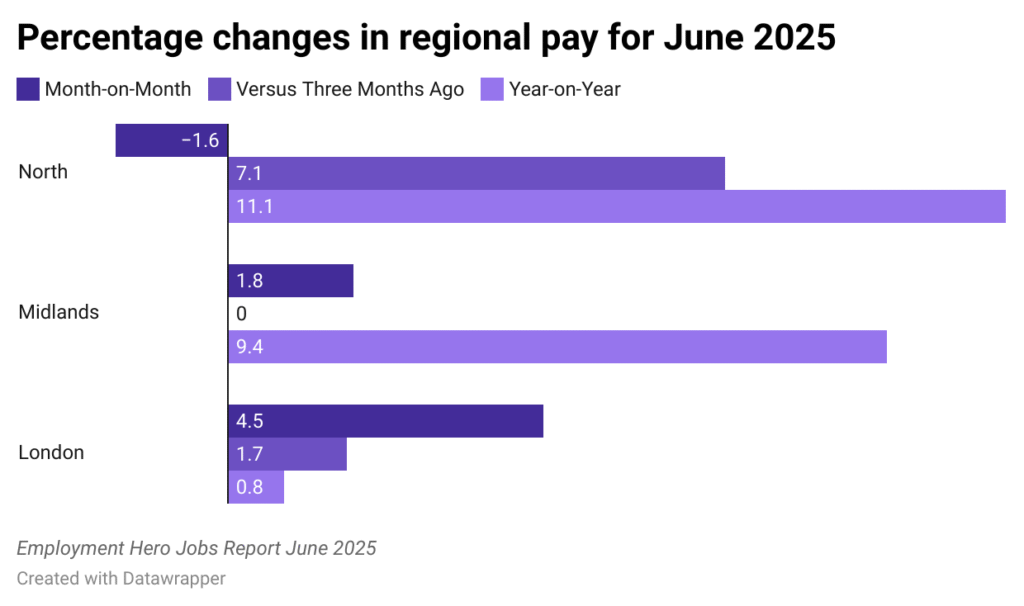
The North of England and Midlands are seeing the largest wage rises in the UK, according to the latest data from Employment Hero.
Employment Hero’s June Jobs Report uses real-time data from 105,000 employees across small and medium-sized businesses with 1-500 employees in the UK.
The North and Midlands saw the strongest salary gains in both monthly and annual comparisons, a clear signal that economic momentum is building outside the capital.
Wages in the North surged 11.1% year-on-year and 7.1% versus three months ago, making it the leading region for pay growth. Despite a 1.6% drop in June, the long-term trajectory remains robust.
The Midlands posted a 9.4% year-on-year rise, with a steady 1.8% increase month-on-month.
In comparison, London, traditionally the UK’s wage leader, experienced more mixed results. Wages in the capital grew by 4.0% in June, bouncing back from three consecutive months of decline, but the three month average stands at -3.4%.
The year-on-year picture for London is also underwhelming with wages up just 0.8%, trailing well behind inflation.

Commenting Kevin Fitzgerald, UK Managing Director of Employment Hero, said: “London and the South have traditionally led the way on wage growth in the UK, so it’s encouraging to see momentum building across the North and Midlands, regions that have been hugely impacted by the cost-of-living crunch.”
“This uplift will be a welcome sign for workers and for SMEs as it points to growing confidence and a more resilient period ahead. The focus now must be on sustained support from the Government to help ensure this positive trend continues.”
Growth in jobs in the North and Midlands is also positive
In the Midlands and North combined, employment grew by 1.7% in June and 2.1% compared to three months ago. This aligns with broader patterns of regional investment and rebalancing efforts by both the government and private sector.
Wider economic factors also help explain the disparity. With London experiencing stagnant wage growth and higher living costs, many SMEs are increasingly hiring and expanding operations in more affordable regions.
Still, the capital is far from losing its economic weight. Full-time roles in London rose 4% in June, contrasting with a 1.8% decline in part-time and casual positions.
The data underlines an evolving UK labour market, one where talent attraction, cost control, and economic pressures are pushing SMEs to rethink geography.
For policymakers and business leaders, these trends reinforce the importance of continued investment in regional infrastructure, skills training, and local business ecosystems.
For SMEs based in or expanding to the North and Midlands, the current momentum presents a window of opportunity. Competitive wages, improving employment rates, and lower operating costs make these regions increasingly attractive for sustainable growth.























